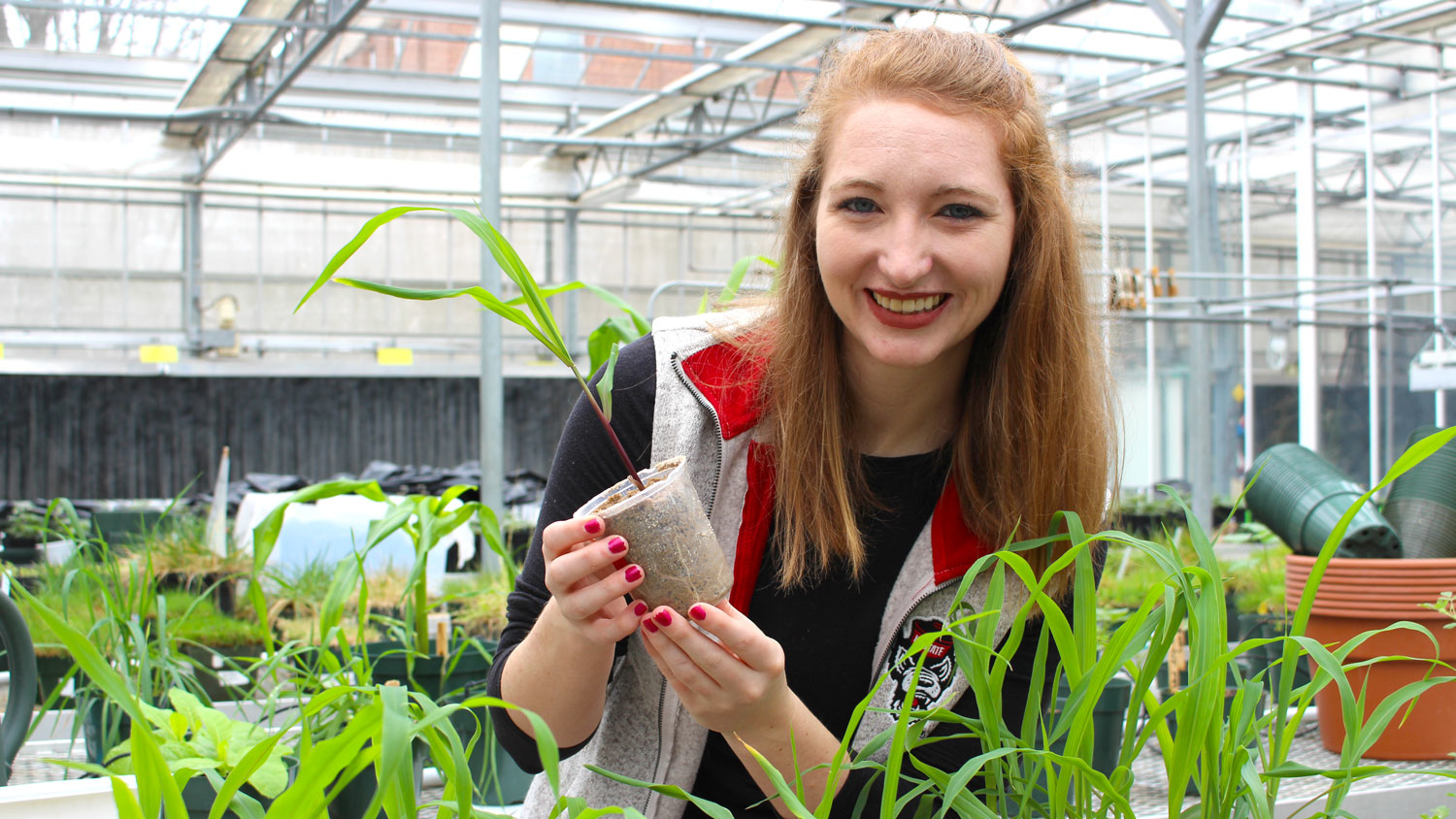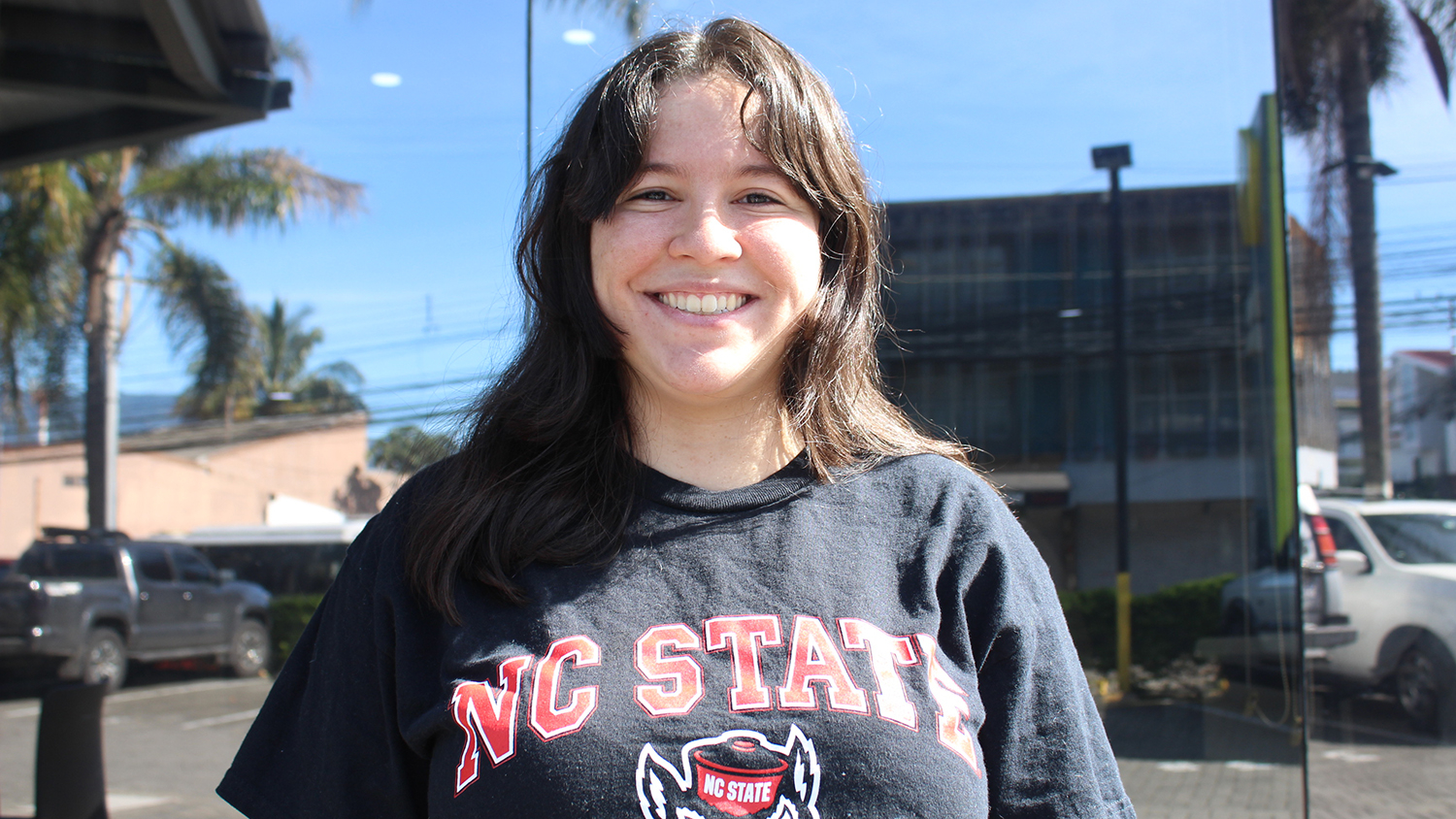Grad Student Wants to Improve Plant Productivity, Food Access

Danielle Cooney, a graduate student in the Department of Crop and Soil Sciences, studies ways to improve soybean production by understanding how the crop interacts with fungi in the soil. Cooney shared how her passion for research and desire to help people led her to pursue a doctorate in NC State’s College of Agriculture and Life Sciences. Cooney’s research advisor is Kevin Garcia. His research focus is on the role of mycorrhizal fungi in plant nutrient uptake.
Why are you in CALS?
Completing my undergraduate and master’s degrees at the University of Illinois set a strong foundation of excellence in preparing me for an agriculture-focused research career. When considering options and opportunities for my doctorate, I knew I needed a quality school that understood the importance of applied agriculture, had a strong commitment to excellence and had a successful record with research and developing students. I also wanted an atmosphere designed to challenge and motivate students to think critically so that we can develop solutions to current and future problems. The opportunity to push the boundaries of knowledge while helping North Carolina soybean growers is fantastic.
Why is agriculture and life sciences important to you?
I grew up on a small family farm and loved spending time working on the farm with my dad or playing outside in the soil. I never had the opportunity to meet my grandparents, but the community always shared stories about what wonderful people they were and how they would always drop what they were doing to lend a hand to a neighbor. We grew up with that same mentality. When looking for a career, I wanted to blend science and helping others. For a while, I thought I wanted to work at St. Jude and help children facing cancer, but it never felt quite right. When I took a plant biology class in high school, I realized I could blend my background and love for plants, soil and agriculture with science and research.
I chose to focus on crop science because I wanted to improve the productivity of plants to help more people have access to food. As I continue to learn and develop, I have found that soil plays an equally important role and is essential to understanding and advancing the knowledge of crops and sustainably producing our global food supply.
Why is the work you are doing important?
My project is focused on understanding the role that arbuscular mycorrhizal fungi has on potassium uptake in soybeans in North Carolina. Soybean production is vitally important to North Carolina producers and is an important global crop. By better understanding how the crop interacts with the soil and the facilitation of this nutrient transportation through arbuscular mycorrhizal fungi, we can provide better recommendations to growers on how to sustainably produce crops and use resources more efficiently.

What impact do you hope to have on the industry?
By pushing the boundaries of knowledge, we can make more informed decisions with land management and use. The environment is one of the most variable and tricky parts of crop production to manage; this knowledge could help us make better decisions with crop placement and fertilizer application. This project could have positive implications with challenges such as water quality, access to fertilizers and more efficient food, fuel and fiber production. One of the fascinating aspects of this project is bringing together knowledge from the basic science side and then applying it.
Discover more amazing CALS students like Danielle.
This post was originally published in College of Agriculture and Life Sciences News.
- Categories:


